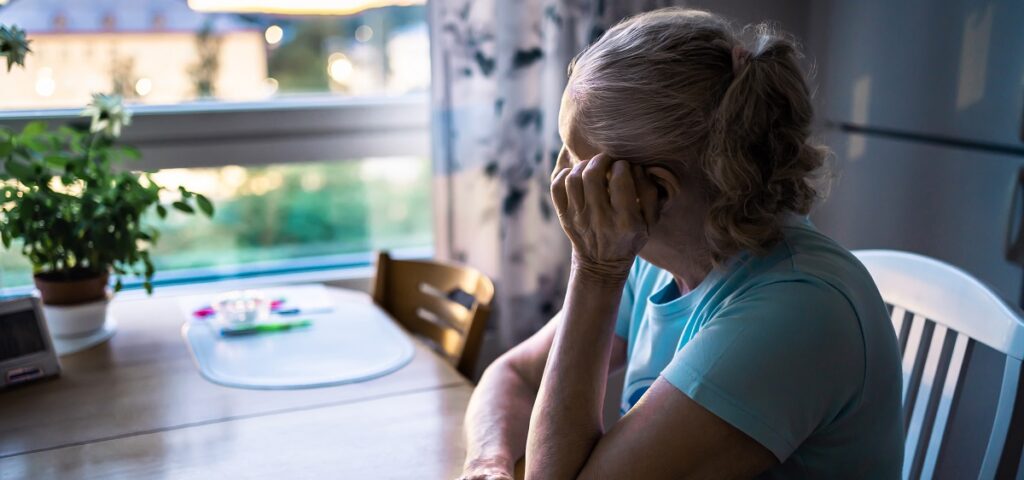Abuse can have a severe impact on the lives of seniors and vulnerable people. It’s essential to recognize the signs of abuse, understand the legal protections available, and know how to intervene effectively.

What is abuse?
Abuse is any behaviour — whether intentional or unintentional — that causes someone suffering or distress. It often occurs in relationships involving trust, such as within a family, a medical setting, or a caregiving relationship.
Abuse can take many forms, including:
- Psychological: belittling or frightening a person into obedience,
- Physical: hitting a person or preventing them from moving,
- Sexual: non-consensual touching or pressuring a person to engage in sexual activity,
- Financial: using a person’s money without their consent or exploiting them financially,
- Neglect: depriving a person of housing or care essential to their well-being.
For more information, see the Quebec government’s guide on mistreatment of older adults and vulnerable people.
|
Child abuse This article concerns adults. If you witness or suspect a child’s security is in danger, you can report this confidentially to the Director of Youth Protection. In some cases, you have a duty to report it. |
How does the law protect against abuse?
The law offers specific protections for seniors and vulnerable persons. People are considered vulnerable if they have physical, cognitive, or other challenges that make it difficult for them to ask for help.
This includes people who:
- are incapable,
- are living with a physical disability,
- have mental health challenges,
- are living with an autism spectrum disorder.
Protection measures in establishments
Public and private health and social service establishments have an obligation to prevent and put an end to any situation of abuse. These include hospitals, seniors’ residences, and nursing homes.
They must:
- Adopt a clear abuse-prevention policy: This policy must be communicated to all staff, users, and their loved ones. You can ask to consult it to better understand your rights and the measures in place.
- Appoint a local service quality and complaints commissioner: The commissioner is responsible for handling reports of abuse and informing the appropriate authorities when a problem arises. To find the contact information of your local complaints commissioner, consult the official list.
Protections for people who report abuse
Anyone can report a situation of abuse, even without the victim’s consent. Reports made to the complaints commissioner are confidential. The identity of the person reporting is protected unless they give their consent to reveal it. The commissioner may, however, share this identity with the police, if necessary.
If you suspect a situation of abuse and report it, you will not be penalized or prosecuted. The law protects whistle-blowers, even if the complaints commissioner ultimately determines that no abuse occurred. For example, you can’t be fired for making a report if you sincerely believed the situation was problematic.
In addition, it’s forbidden to threaten or intimidate a person to prevent them from reporting a situation or cooperating with authorities.
Obligation to report
All health and social service providers must report situations in which they believe a senior or a vulnerable person is the victim of abuse. This obligation also applies to professionals such as doctors, psychologists, and social workers.
In addition, professionals who have a duty of confidentiality can share confidential information with authorities in situations of grave danger. For example, a doctor can alert authorities if injuries due to abuse endanger a patient’s life, even without the patient’s consent.
Penalties for abuse … and for retaliation
Abuse of a senior or a vulnerable person can result in severe penalties, such as fines ranging from $5,000 to $250,000, depending on the severity of the abuse.
People who fail to meet their reporting obligations, or who retaliate against whistle-blowers, may also be penalized with fines ranging from $2,500 to $25,000.
For example: a care attendant in a seniors’ residence notices a situation of abuse and reports it. In retaliation, the employer cuts the attendant’s working hours in half. The employer could be fined for this.
Anyone can ask for sanctions to be imposed on people who commit abuse or fail to meet their obligations. To find out more, visit the Quebec government’s website.
Helpful resources
If the victim of abuse is receiving care or services from an establishment that is part of the health and social services network, contact the local service quality and complaints commissioner to file a complaint or report the situation.
If you witness a violent situation or are in danger, call 911 immediately. In communities not served by 911, call 310-4141.
If you have any questions or would like to talk with someone, you can contact the following resources:
- The Mistreatment Helpline — a bilingual, confidential helpline and referral service for victims of mistreatment and their loved ones. Call 1-888-489-2287 or 514-489-2287 in Montreal.
- Info-Social 811 — a free bilingual and confidential telephone consultation service. If you call 811, you’ll be put in contact with a psychosocial worker who can answer your questions and refer you to appropriate resources.
- Crime Victims Assistance Centres (CAVACs) — provide free and confidential support for crime victims and their loved ones. It’s not necessary to have filed a police report to benefit from the services of a CAVAC. You can reach them at 1-866-532-2822.





